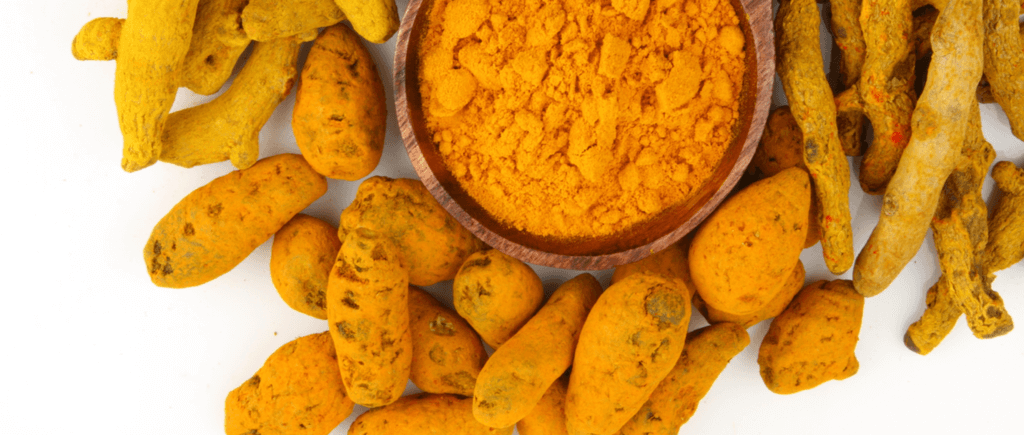WATCHDOG: Is Your Turmeric Supplement Contaminated with Lead?

The Watchdog series is back, and if you thought synthetic ingredients were the worst of your problems, you’re going to want to read this.
Turmeric-based curcumin supplements are the best-selling herbal products in the United States, and according to amounting evidence, they are also the most vulnerable to contamination.
Adulteration of turmeric with lead is a growing concern in India and Bangladesh, but it’s likely that many of the turmeric products on store shelves at home pose an equal risk to the public health.
Widespread Turmeric Product Recalls
A recent study, published in Public Health Reports, the official journal of the US Public Health Service and the US Surgeon General, described how as many as 13 different brands of turmeric-containing products have been recalled from stores around the country due to lead contamination.

What's worse, the study also mentions several cases of child lead poisoning in the United States resulting from the consumption of spices -- including turmeric.
In an independent study, samples of turmeric were collected from over 30 retail and independent stores in the greater Boston area.
When the samples were analyzed, scientists found more than 50% contained lead concentrations well above what is allowable by the FDA.
Related Content: 5 Spices That Enhance Your Food and Make It Healthier
How much is allowable?
At this time, there is no guideline for the FDA’s maximum allowable level of lead in spices, but in candy, the closest comparison, the level is 0.1 ppm (parts per million).
Here’s a helpful way to think about ppm: visualize putting four drops of ink into a 55-gallon barrel of water and mixing it thoroughly. This procedure would produce an ink concentration of 1 ppm. Would that be safe to drink? Well, that depends on what the ink is made of.
Of the 13 brands recalled, samples had lead concentrations between 28 - 48 ppm, well above the upper allowable limit.
Contamination Starts at The Source
To understand how prominent contamination was inside people’s homes, Harvard University conducted a surveillance study in rural Bangladesh.
After collecting samples from 18 households, the researchers reported lead concentrations of up to 483 ppm in turmeric samples.
The maximum allowable level of lead in India and Bangladesh is a bit more generous compared to the United States, at 2.5 ppm, but case reports routinely show contamination levels up to 100x that.
Over the years, numerous newspapers, independent organizations, and reporters have found alarmingly high levels of lead contamination in all varieties of turmeric products from stores, processing facilities, and people’s homes.
Furthermore, several international media outlets have reported that adulteration of turmeric with lead is a routine and ongoing problem today.
Why is this happening?
There will always be the risk of pollutants and contamination in our food system, but this is something else.
Turmeric growers are intentionally adding lead, it’s not mysteriously finding its way into their crops and ultimately, into bottles on your store shelves.
Reporters speculate that lead chromate, which is identical in color, is added to enhance the weight and the color.
However, when a local newspaper interviewed a turmeric grower in India, he revealed that lead is added deliberately to hide imperfections or marks of pest attacks.
Specifically, lead chromate is added during the boiling and polishing process to make the roots look more attractive to big spice buyers and processing firms.
Related content: Synthetic Curcumin: Is Your Curcumin Made From Petroleum?
How To Make Sure Your Curcumin Is Contaminant-Free
Companies being financially motivated to adulterate their products is nothing new.
In 1994, ground paprika was also adulterated with lead in Hungary, resulting in the poisoning and hospitalization of dozens of people.
Or more familiar, we’re seeing large companies cut their supplements with cheap filler ingredients, binders, or nondescript “proprietary blends” which fail to disclose what exactly you’re putting into your body.
Turmeric continue to be the best-selling herbal supplements in the United States, and for good reason. It has shown benefits in a multitude of processes in the body from alleviating allergic reactions, inflammation, healthy cellular function, and more.
As a rule of thumb, when choosing a turmeric supplement, look for open source companies that disclose as much information about their product as possible. Ask for batch testing reports and information on their supplier, and make sure you get what you pay for.










